“Nobody knows where the Veterans Center is,” says Becca Thomas, a University of Oregon student and employee of the Veterans Center. “I mean, it’s past the bathrooms.”
The Veterans Center is hidden down a long hallway on the bottom floor of the Erb Memorial Union on the UO campus. The room itself is modest, lined with tables to work at and hosting a coffee and snack bar, but the huge American flag hanging from the ceiling is what catches most people’s eyes. The space is small and getting there requires a map, but to veterans and dependents — parents, spouses or children of veterans — like Thomas, this place is a safe haven.
According to the Veterans Association, approximately 2.7% of students at the UO are using a G.I. Bill to pay for their education. The G.I. Bill has been providing veterans and/or their children with tuition assistance since it became a law in 1944. People who have served in the military for more than two years can qualify for tuition assistance, free college, free vocational school and counseling services.
However, figuring out how to receive these benefits is a hurdle in itself that requires sifting through lots of complex paperwork. Most veterans at the UO visit the Veterans Center to get help figuring out how their G.I. Bill can benefit them, but end up sticking around for the community.
“It sort of acts as a transition hub or decompression zone,” says Jacob Pixler, a UO student and Veterans Center assistant coordinator.
The Veterans Center not only answers G.I. Bill-related questions, but they also hold events like the Veterans Outdoor Club, connect people with mental health resources and provide a space where veterans can feel understood.
To serve in the military, one signs a contract to serve an agreed-upon number of years, which makes a majority of veterans older than the rest of the student population. James Lamping, a UO graduate student and veteran, says the age gap is the biggest reason veterans tend to feel isolated on college campuses.
“The mindset is just, ‘I don’t get these people, and I don’t understand how this place works and I don’t feel like there’s anybody on this campus that relates to me,’” Lamping says.
As a graduate student, Lamping has already gone through the experience of adjusting to a college campus post-military service. After serving in the navy for six years, Lamping decided to go back to college for forest ecology at Humboldt University. It was there that he first felt these feelings of isolation on a college campus.
“I didn’t know anyone, really, my first year,” Lamping says. “I was living in an RV park like six or seven miles away from campus, and it was just hard to meet people.”
Eventually, he started seeking out the veterans’ center on campus and discovered Humboldt’s outdoor program for veterans. The program planned hikes, mountain biking trips, kayaking, skiing and more. Lamping loved the program so much that when he came to the UO for graduate school, he decided to build a veterans’ outdoor program from the ground up. His goal is to give veterans a chance to bond through nature and to show them that being outdoors can be a fun and meditative experience rather than a difficult chore.
“It’s just kind of reframing that mindset to show them that outdoor recreation here is fun and more of a healing device than it is like an arduous task,” Lamping says.
For Lamping, finding community through the Veterans Center was how he made it through his undergraduate years. However, he recognizes that finding the center is a challenge.
“I’m hoping that things like the outdoor program will make the Veterans Center more visible,” Lamping says.
Pixler pointed to the lack of diversity in experiences and identity at the UO as part of the reason it’s difficult for veterans to find community.
“There’s a very specific path most people have taken to get here, including professors,” Pixler says.
Pixler was 22 years old when he traded his neon orange construction vest for army green. Pixler says he could try to come up with some grand and heroic reason for joining the military, but in all honesty, he was bored. He was living with his dad in West Virginia, a place he loathed, working a job he didn’t really enjoy and craved adventure.
Pixler wanted to jump out of airplanes, so he hit the ground running and headed straight for a military recruitment office. He told the recruiters that he wanted to be a paratrooper — someone that parachutes out of airplanes. The recruiters denied his request, saying he would have to be a water treatment specialist before he could become a paratrooper. Pixler now knows that was a lie to try and fill a quota. Regardless, he took the job and was deployed to Iraq soon after.
Pixler worked his way out of water treatment specialization early on in his deployment and began working more on logistics for the Special Forces unit, which meant he was coordinating movements of personnel and equipment from place to place. Pixler’s special forces unit used one of Saddam Hussein’s palaces as a place to stay and store equipment.
Outside the layers of concrete barriers that enclosed the base was Baghdad. Pixler would venture into town when given the chance to pick up bootleg DVDs, eat better food and hangout with the locals. When Pixler was deployed, he never really questioned why they were in Iraq.
“We were fighting terrorism,” Pixler says, “or whatever that meant.”
Pixler says that even among the leadership in the military, the “why” was rarely discussed.
After serving in Iraq for eight months, Pixler was relocated to Mali for a few more months and spent his final deployment in Germany for a few weeks. It wasn’t until after coming home that Pixler began trying to make sense of the “why.”
“After the war in Ukraine started, a bunch of veterans joined to go and fight with Ukraine,” Pixler says. “Some of them were asked why they went and they said it felt like a justified war. They felt like they were actually fighting for something. And I think that sort of speaks to what it felt like to be in Iraq. Like, nobody knew what they were doing, why they were there, you know?”
Katie Roles – another UO student and veteran – joined the military for a similar reason to Pixler.
“Pretty much anyone that joins the army is looking to escape from wherever they are in life,” she says.
Roles was so desperate to leave her hometown of Sacramento, California, she enlisted in the army before she graduated high school. Within a few weeks of her high school graduation, Roles was off to Georgia for training.
Role’s first deployment was in South Korea. She looks back on that time in her life fondly.
“I was single. I had no bills, no responsibilities,” Roles says. She says she just got to have fun for six months, until her money ran out, leading her to cut back a little.
Roles spent a year in South Korea meeting new people, volunteering at a local orphanage and supporting the local businesses around the base. She says for the most part, the locals had positive attitudes towards the military, but closer to Seoul, people were less enthused.
“The college students held a yearly demonstration,” Roles says. “We were always told never to leave our post and stay away from Seoul during those times.”
After returning from South Korea, Roles moved to Colorado and continued working for the military doing office work for three years. During Roles’ service in South Korea and Colorado, she injured both of her feet and had to undergo surgery. Because of these injuries, she was able to file for medical discharge, which would release her from her military contract.
When Roles discovered she was pregnant, she immediately signed the paperwork to leave the military on medical discharge. She says her decision to leave the military was solely to spend time with her son.
“I knew what it took for single parents to be in the military, and I couldn’t do that,” Roles says.
Roles’ discharge date was September 19, 2001; six months after her son was born. Now, 22 years later, her son is active duty in the military. Similar to his mother, Roles’ son joined the military straight out of college. Roles was supportive of her son’s decision to serve, but told him he had to have a plan.
“I was clueless when I joined the military,” Roles says. “I told my son if he wants to go into the military, he’s gonna pick a job that has a civilian equivalent, so he can have a job when he comes home.”
Roles is happy to guide her son through his journey in the military, but she is simultaneously learning that a lot has changed since she served. Roles is seeing through the eyes of her son that things are mostly changing for the better.
“They’re definitely more aware of the fact that when they don’t let soldiers heal from injuries, they become chronic,” Roles says.
She explained that when she was serving, it wasn’t uncommon for physical and mental health to be ignored. Now, she says the military is much better at managing their soldiers’ wellbeing.
After Roles left the military, she needed a job. She tried going to a small animal veterinary technical school, but after a year and a half of attending school, working upwards of 30 hours a week and raising her son, she was burnt out. So, she decided to wait to go back to school until her son was out of the house.
As soon as her son graduated, Roles returned to school to pursue a passion she never had the chance to do: architecture. She packed up her life, moved to Eugene and is now enrolled in the UO architecture school.
Likewise, Pixler decided he was finished with his adventure after four years of serving in the army and wanted to challenge himself by going back to school, too. He started out at community college and has since transferred to the UO as a history major with minors in philosophy and sociology.
Pixler, like many others, didn’t realize the Veterans Center existed. When he finally found it, he thought he was too late in his college career to need it. It wasn’t until he saw a job posting for an assistant coordinator position at the center that he fully immersed himself in what it has to offer.
“I was letting self-reinforcing isolation do its work, and then I saw this job and I thought about what it was like to self-isolate,” Pixler says. “That’s why I wanted that job. I wanted to find the people who were looking for other people.”
Pixler wasn’t the only one looking for other people. In fact, loneliness seems to be a string connecting each person in the Veterans Center.
Becca Thomas had no intention of getting involved with the Veterans Center when she first started college, but her experience growing up with a military dad made her long to be surrounded by people who could understand her.
“There’s a big feeling of alienation on campus, because of traditional students not really understanding,” Thomas says.
Thomas’ dad served in the military for 18 years, 10 of which he was active duty. As a dependent, Thomas wasn’t sure if she would find a place at the center, but she says all her worries about that have subsided.
“When I was a kid, I just hated the military, because they were taking away my dad from me,” Thomas says.
Thomas still has complicated feelings towards the military, but has become increasingly passionate about helping veterans and their families get the support they need. Mostly, Thomas wants people to understand the distinction between supporting the military and veterans.
“I think for a lot of larger society, it’s really hard to separate the political issues that the military is involved with versus the people who are in the military,” Thomas says. “And as much as we can criticize why the military is doing what it’s doing, I think that it’s just as important to see the people that are really hurt by it and to support them any way you can.”
Thomas’ time spent at the Veterans Center has influenced her to go into counseling for veterans after college, where she hopes she can continue helping veterans feel accepted back into society.
Thomas and the other students found the center in their own time, but now that they’re here, it’s difficult to imagine campus without it. It’s a community that transcends age and race by being built solely upon a deep understanding of one another’s experience living in a world vastly different than that of their colleagues.
“I mean, it’s not therapy,” Thomas says, “but it’s kind of unity.”
Jacob Pixler gazes out over the University of Oregon campus and reflects on the path that led him to working at the Veterans Center. “I wanted to find the people who were looking for other people,” Pixler says.


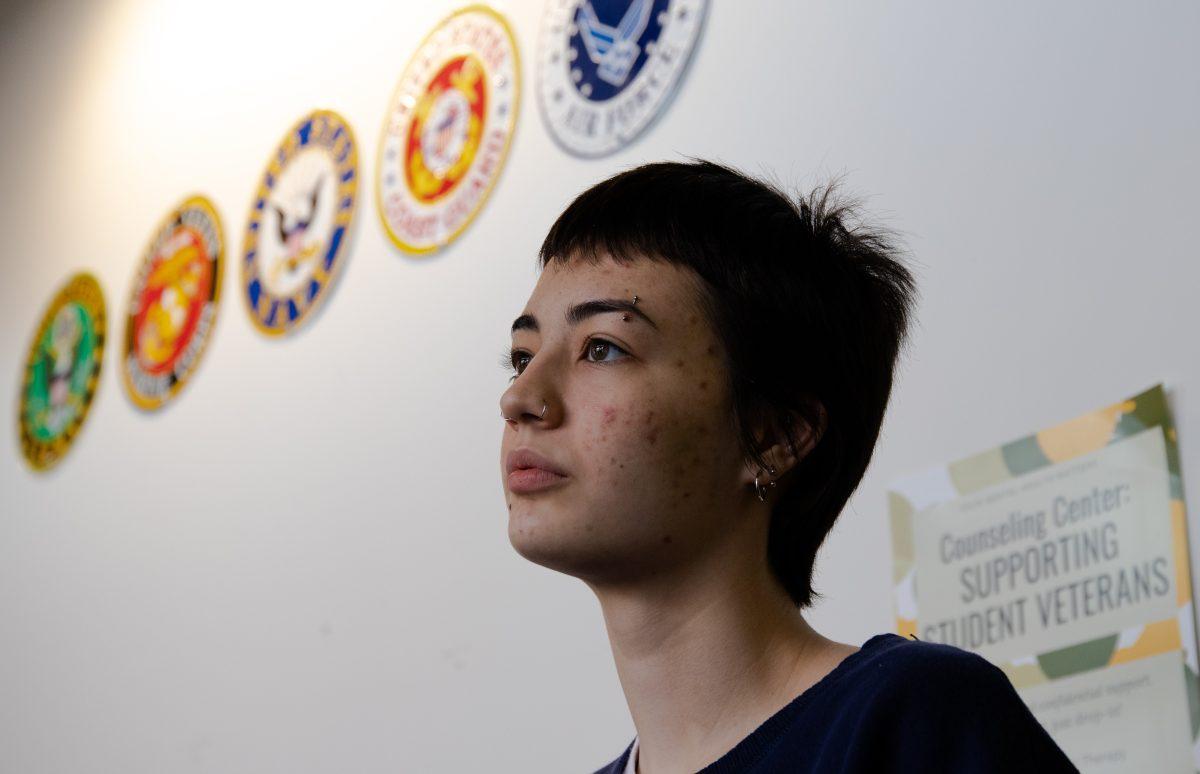
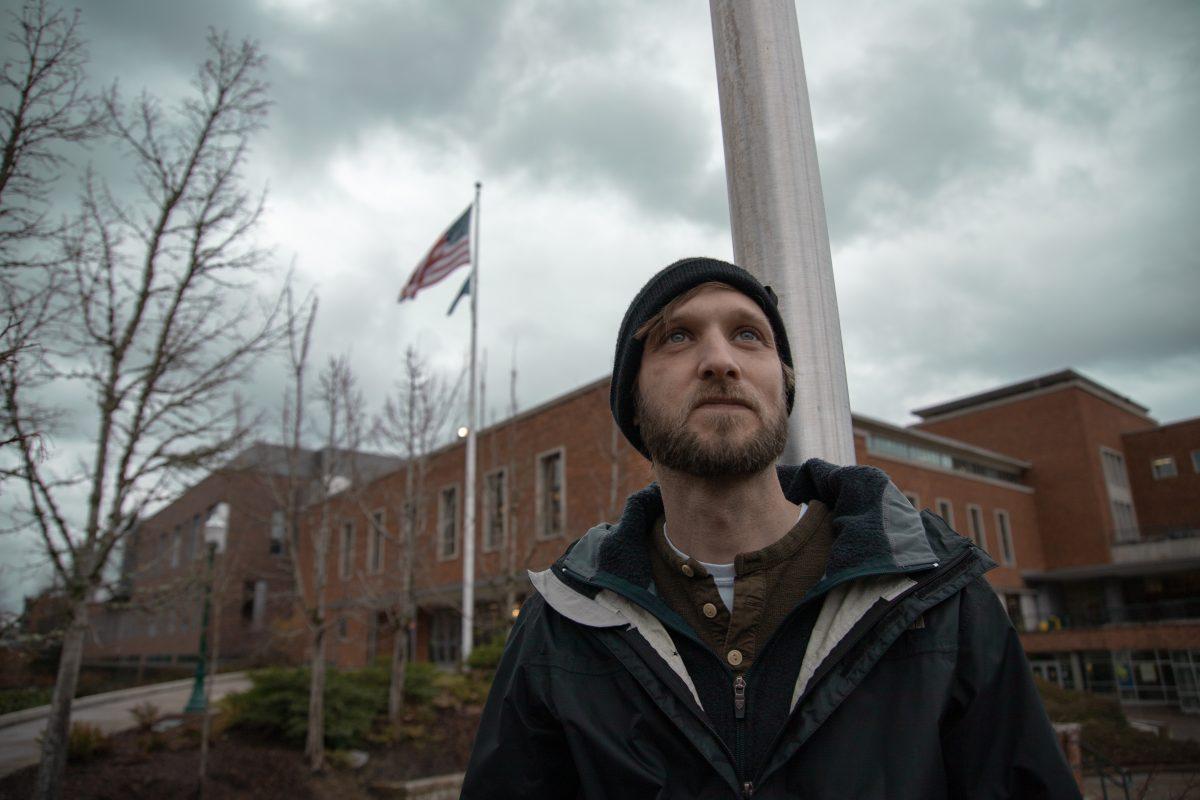
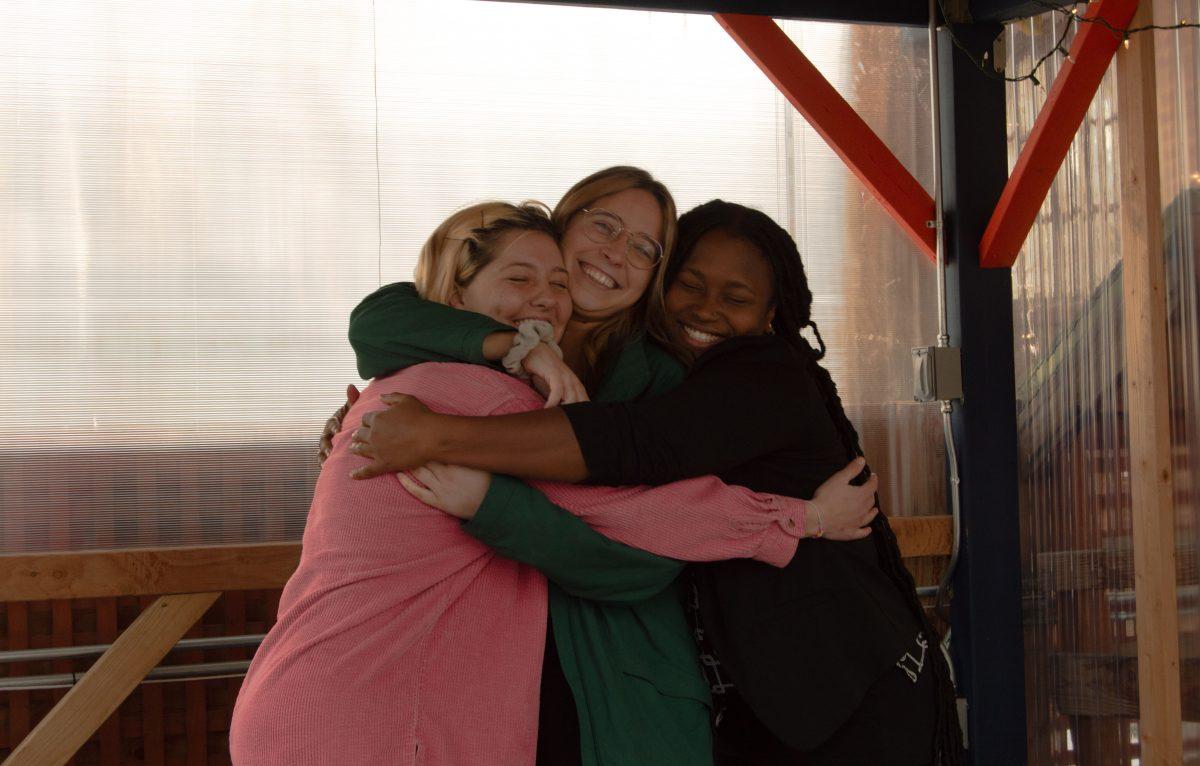
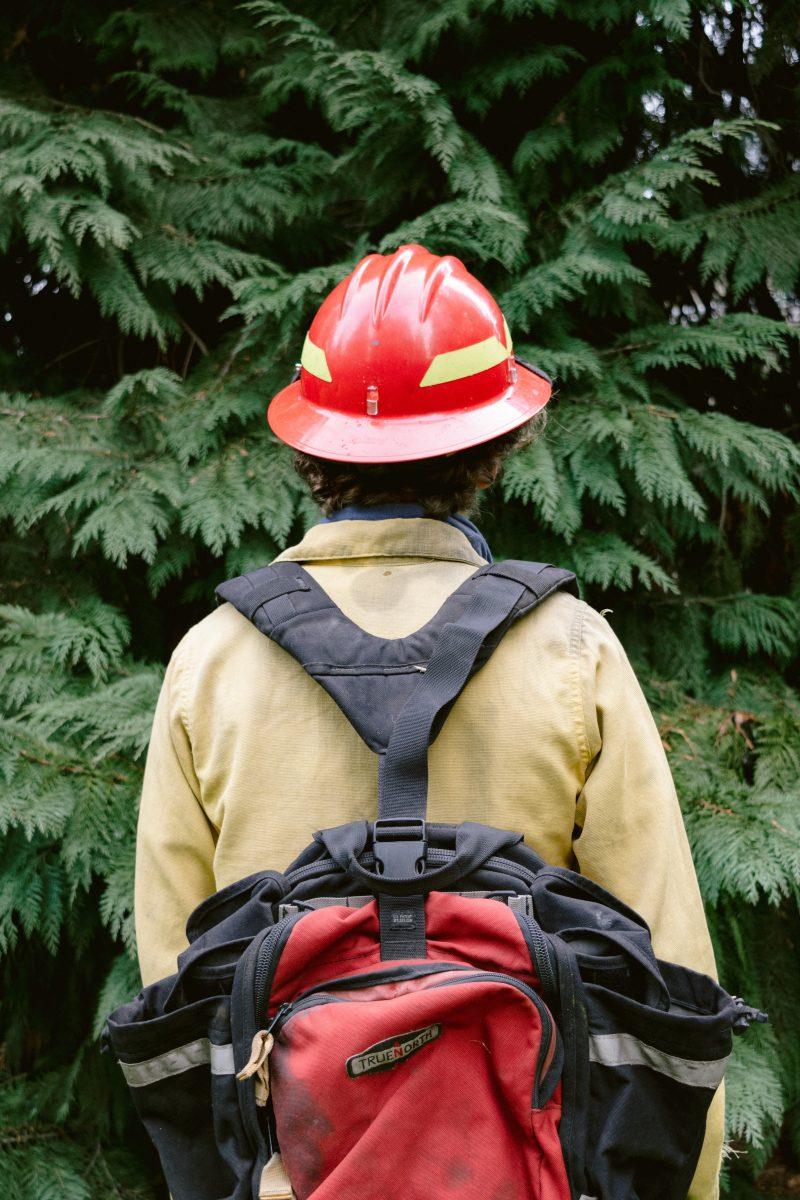
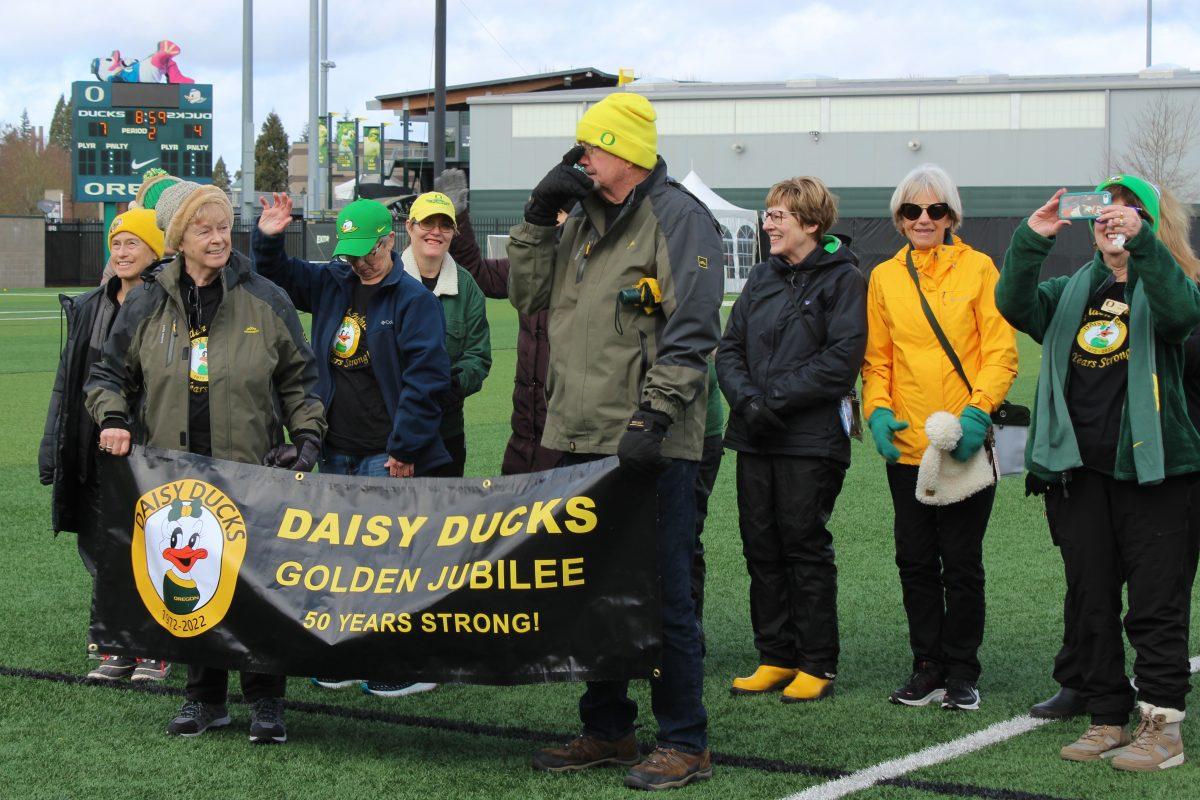


![[Photo Courtesy of the Lara Family]
Ruben embraces his beloved childhood goat, Katrina.](https://ethos.dailyemerald.com/wp-content/uploads/2025/05/katrina-1-1060x1200.jpg)


